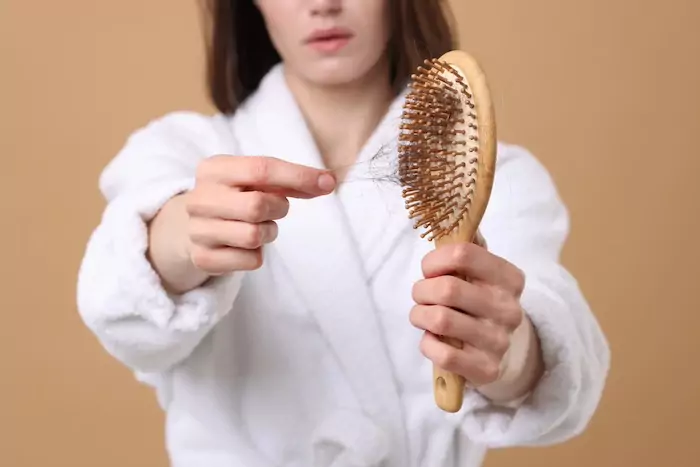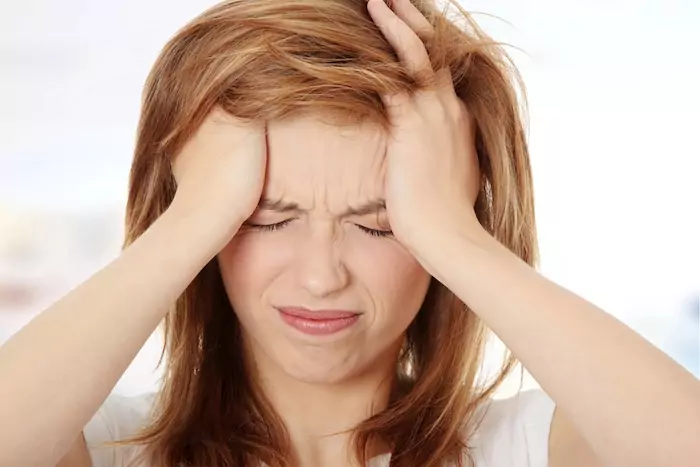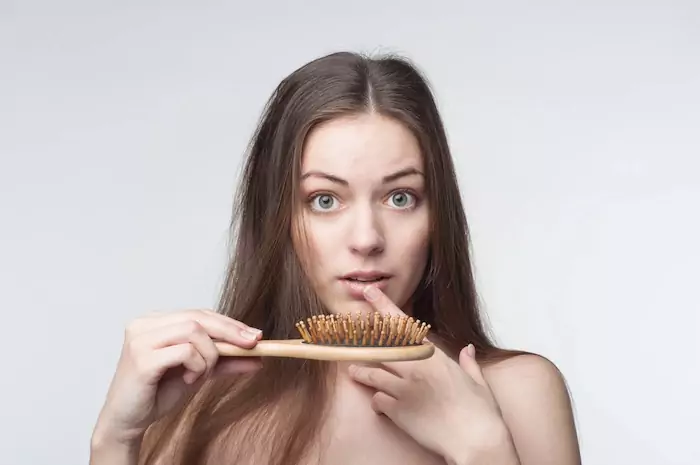If your hairbrush is starting to resemble a small woodland creature, or there are more than just a few strands stuck in the plug hole, don’t worry. All is not lost. In a world where inboxes overflow, calendars are double-booked, and sleep feels like a luxury, your current hair situation might be waving a silent white flag. Stress could be a cause.
We often talk about how stress steals our peace of mind — but did you know it can also contribute to hair loss, robbing us of our precious hair?
The Link Between Stress and Hair Loss
According to the NHS, stress is one of the biggest culprits behind hair loss. Higher-than-average stress levels meddle with your body’s natural rhythms, especially the hair growth cycle.
When cortisol, the infamous stress hormone, surges for too long, it can push your hair follicles into early retirement, stopping hair growth, a phenomenon known as telogen effluvium.

Recognising Stress-Induced Hair Loss
Unlike hereditary hair loss, stress-induced shedding doesn’t follow a neat pattern. Instead, it causes thinning all over the scalp. If you’re seeing more hair clogging the drain or your ponytail looks noticeably thinner, it could be a sign that stress is taking a toll — and it might be worth discussing with a mental health professional.
This handy guide from Oxford Online Pharmacy can help you identify some signs and symptoms of stress-related hair loss.
Nutritional Deficiencies and Hair Health
Stress doesn’t just mess with your hair. It also takes a toll on your appetite. Between skipped meals and comfort food binges, essential nutrients like iron, zinc, and biotin often fall by the wayside. And why are they important? These nutrients play a key role in supporting the strength and health of your hair.
The solution? Incorporating hair loss vitamins may help replenish some vital nutrients supporting hair regrowth. Supplemental vitamins can make a difference with a balanced, health-conscious diet and plenty of hydration. They all work to stimulate regrowth on dormant follicles (basically, the ones that have weakened but haven’t died out entirely).

Hormonal Imbalances Triggered by Stress
Stress can cause chaos in your hormones, particularly oestrogen and progesterone. Both of these hormones help regulate your hair growth cycle. This is why, when hormone levels fluctuate wildly due to chronic stress, the hair follicles can respond by shrinking back, leading to increased hair shedding and reduced regrowth.
Practical Strategies to Combat Stress-Related Hair Loss
Mindfulness, gentle movement and prioritising quality sleep can help reduce cortisol levels and restore harmony to your hair’s natural cycle. The NHS offers practical tips for managing stress and coping with hair loss, from breathing exercises to seeking professional support.
Conclusion
The bottom line? If you’ve been doom-searching how to fix thinning or shedding hair at some point, you might want to take a step back, relax, and start taking it easy for a while. Do whatever destresses you. Nourish your body, calm your mind, and consider supporting your scalp health from the inside out.

